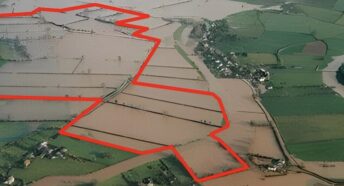Flooding: Fears, Facts and the Future
An exciting programme has been announced for Flooding: fears, Facts and the Future, the conference on 6th February 2015 organised jointly by CPRE Kent and Kent County Council.
Speakers include:
- The Rt Hon Damian Green MP: Safe Development in an area of flooding, looking at experience in Ashford as a high housing growth area which is threatened by floods;
- David Thomas, Senior Analyst at the Committee on Climate Change: Adapting to a changing climate – is planning policy addressing future flood risk?
- Paul Crick, Director of Development, Planning and Enforcement at KCC: Lessons learned from the storms and floods of Christmas/ New year 2013-14;
- Geraldine Brown, Chairman of Yalding Parish Council: The Yalding Experience;
- Espen Ostbye-Strom, Chief Operating Officer, Floodline Development: Making the most of available land – how we can build on flood risk areas safely;
- Christine Drury, Chairman of CPRE Kent: The Romney Marsh Challenge – looking at the impact on farming in this special area.
Christine Drury, CPRE Kent Chairman, commented: “Flooding can have a profound impact on our landscape and environment as well as on people and businesses. This conference will look at the risks and what is being done to protect our county. It will highlight the importance of good planning, particularly with the intense pressure for house building we face.”
The conference is being held at Sessions House, Maidstone from 9.30am-4pm (registration from 8.45am) and includes lunch and refreshments. Booking is via Eventbrite, click here to go to the booking page. Click here for the full programme.
12th January 2014.
- A number of important documents have yet to emerge. For example, a rigorous transport plan and a finalised air-quality assessment. The latter is critical given that allocations at Teynham will feed extra traffic into AQMAs.
- There seems to be no coherent plan for infrastructure delivery – a key component of the plan given the allocations being proposed near the already crowded Junction 7.
- There seems to have been little or no cooperation with neighbouring boroughs or even parish councils within Swale itself.
The removal of a second consultation might have been understandable if this final version of the plan were similar to that being talked about at the beginning of the consultation process. It is, however, radically different in the following ways:
- There has been a major shift in the balance of housing allocations, away from the west of the borough over to the east, especially around the historic town of Faversham. This is a move that raises many concerns.
- A new large allocation, with accompanying A2 bypass, has appeared around Teynham and Lynsted, to which we are objecting.
- Housing allocations in the AONB around Neames Forstal that were judged “unsuitable” by the council’s own officers have now appeared as part of the housing numbers.
- Most of the housing allocations being proposed are on greenfield sites, many of them on Grade 1 agricultural land – a point to which we are strongly objecting.
Concerns about the rush to submit the plan
The haste with which the plan is being prepared is especially worrying given the concentration of housing in Faversham. If the town is to take a large amount of new housing, it is imperative that the policies concerning the area are carefully worked out to preserve, as far as possible, the unique nature of the town. The rush to submit the plan is likely to prove detrimental.
As Swale does not have a five-year land housing supply, it is open to speculative development proposals, many of which would run counter to the ideas contained in the current plan. Some are already appearing. This is a common situation, and one that, doubtless, is a reason behind Swale’s haste.
Our overriding fear, however, is that this emphasis on haste is ultimately going to prove counterproductive. This is because it is our view that the plan, in its current form, is unlikely to pass independent examination. We are urging Swale to listen to and act upon the comments being made about the plan and to return the plan to the council with appropriate modifications before submitting it to the Secretary of State.
Essentially, this means treating the current consultation not as the final one but as the ‘lost’ second consultation.
The consultation ends on Friday 30 April and we strongly urge residents to make their opinions known if they have not already done so.
Further information










